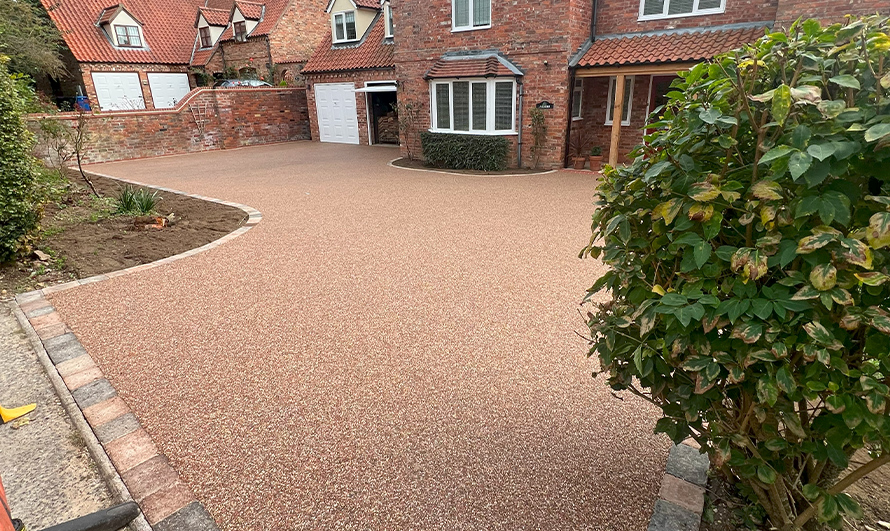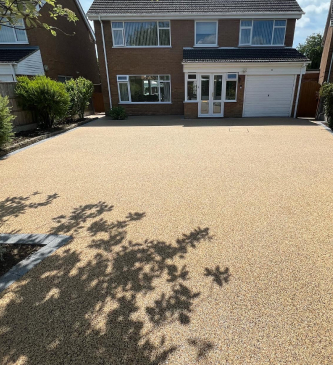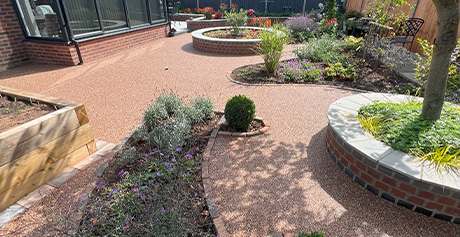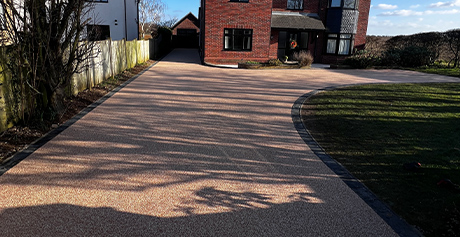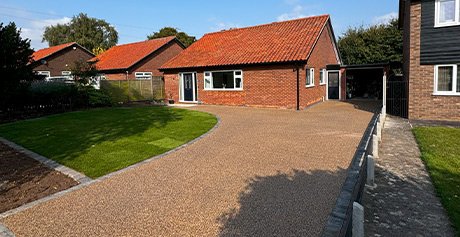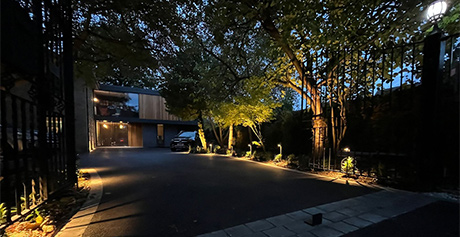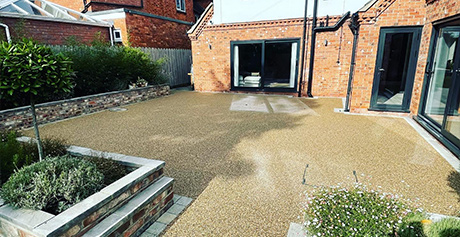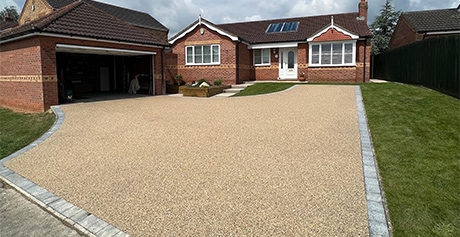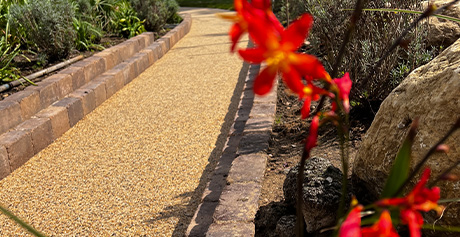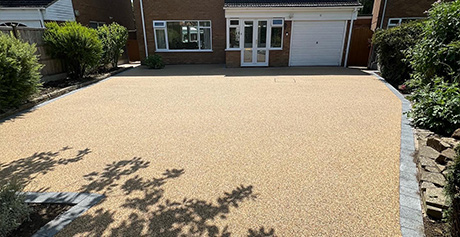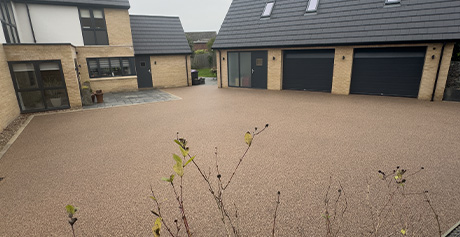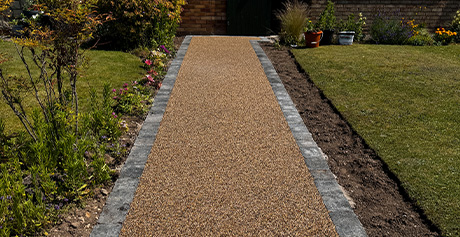The Pros and Cons of Resin Bound Surfaces on Slopes: An In-Depth Review
For homeowners, property developers and landlords, deciding on the right surface for a driveway, a path, or even a patio can be challenging. One option that has been gaining popularity in recent years is the resin-bound surface. It’s touted for its aesthetic appeal, durability, and permeability.
But the question one of the most frequently asked questions that we get asked at StoneSet is whether resin bound surfaces are a good idea on slopes.
As a potential solution for sloping surfaces, we delve into the factors that may influence the effectiveness and suitability of resin-bound surfaces.
What is Are Resin-Bound Surfaces?
Let’s briefly remind ourselves what resin-bound is (just in case you’ve forgotten or haven’t read any of our previous blogs).
A resin-bound surface is created by mixing clear UV-stable resin with natural aggregate and then trowelling it onto a suitable surface to a smooth finish. It results in a surface that, according to ResinDriveways.co.uk is attractive, durable, permeable, and requires minimal maintenance.
The Slippery Slope Question
One of the main concerns homeowners, developers and landlords have about resin-bound surfaces on slopes is the risk of slipperiness, especially when wet. This fear is justified because as we all know falls can result in serious injuries.
It may come as a surprise that resin-bound surfaces perform exceptionally well in this aspect. The texture of the aggregates provides ample friction, making it an anti-slip surface, even when wet. According to Sureset, a leading resin surface provider in the UK, “Resin bound paving has been slip-tested and proven to be an anti-slip surface.”
Drainage and Permeability
One of the most significant advantages of resin-bound surfaces is their permeability. The water drains through the surface into the sub-base, reducing the risk of pooling and surface water that can be dangerous on slopes.
This feature is in line with the UK’s planning rules that promote Sustainable Urban Drainage Systems (SuDS), which means having one installed may not require planning permission for installation. If you’re unsure you can always check in the PlanningPortal, or just ask us, we’re here to help!
However, the effectiveness of the drainage system will also depend on the condition and permeability of the sub-base and the slope’s gradient. It’s essential to consult with a resin surface professional like us to evaluate these factors thoroughly.
Durability and Maintenance
A resin-bound surface is a hard-wearing solution, capable of withstanding vehicle and foot traffic without losing its visual appeal. It’s UV resistant, which means it won’t fade or discolour in sunlight – an important consideration for outdoor surfaces.
Maintenance is minimal. Regular sweeping and occasional power washing should keep the surface in good condition. However, it’s important to note that the surface may require resealing every few years, particularly if it’s on a slope where it could be subject to more wear, according to The ResinMill.
Aesthetics
From an aesthetic standpoint, resin-bound surfaces are versatile and can be tailored to match the surroundings and architecture. It’s available in a range of colours and styles and can be used to create intricate designs and patterns. This allows you to use a functional surface that also adds to your property’s curb appeal.
Professional Installation is Crucial
One of the crucial factors that determine whether a resin-bound surface will work well on a slope is the quality of installation. As Tony McCormack, an independent paving expert, highlights, “As with any other form of pavement construction, it’s never the materials that fail: it’s always the workmanship.”
If the resin-bound surface is installed incorrectly, there can be issues like resin shrinkage, stone migration, and cracking, which would be particularly problematic on a slope.
That’s why we feel you should Choose an Approved Installer. The peace of mind, not to mention the guarantee of workmanship comes as part of the package and in our opinion is priceless!
Conclusion
A resin-bound surface can be an excellent choice for a slope, provided it’s correctly installed and well-maintained. It’s anti-slip, permeable, durable, and aesthetically pleasing, making it a solid investment for property developers, landlords and homeowners alike.
However, not all slopes and conditions are created equal. Each project requires a comprehensive site assessment to ensure that a resin-bound surface is suitable. It’s crucial to engage a reliable, experienced resin-bound surface provider to ensure the best outcome.
Contact Us
To ensure the best results of your resin driveway installation, choose StoneSet. When you’re ready, get in touch for a no-obligation quote.
